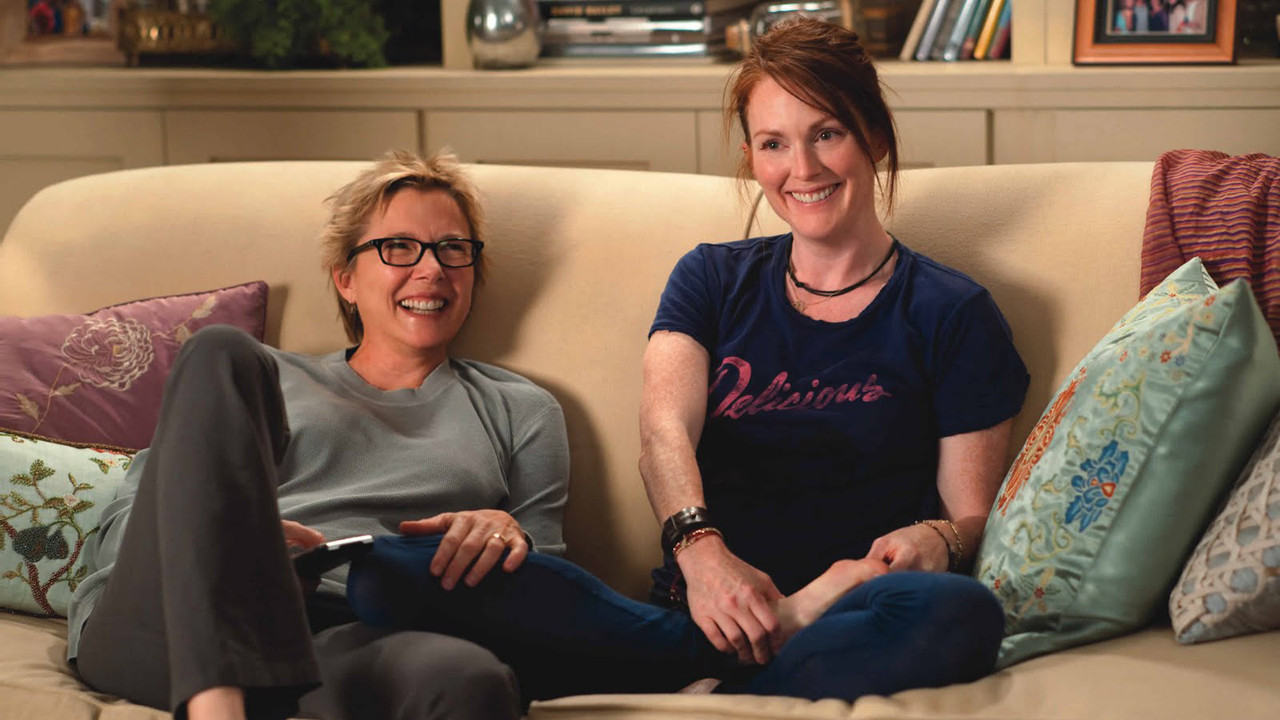directed by Lisa Cholodenko
18. The Kids Are All Right,
directed by Lisa Cholodenko
Planting a Family Is Easy, Growing One Is Hard,
But The Kids Are All Right
“Why’d you donate sperm?”
“Well, it’s a lot more fun than donating blood.”
True indeed, but far messier…
As a young, aimless dropout, Paul would never have expected that his little sperm donations would swim back to find him. But in the summer before Joni (Mia Wasikowska) heads to college, her and brother Laser (Josh Hutcherson) decide to do just that. What will mums say when they find out? In a highly modern reflection of our society, scientifically advanced and increasingly tolerant to diverse relationships, the Allgood family consists of two mums, two children and one donor. (Julianne Moore and Annette Bening phenomenally play mums one and two.)
Aspiring to change “donor” to “dad”, the familial dynamics are soon shifted again and again as the family scrambles to open its circle to him and stitch itself back together again. From tentative beginnings to gradual growth, things start to complicate further when Paul (Mark Ruffalo) enters the picture a little more liberally than expected.

Rarely do movies have such a vibrancy and freshness as this one. It’s grounded in realism, and tickles us with the subtleties of domestic life. By stripping away the usual Hollywood veneer we are left with a courageous and totally unaffected product, effervescent in its relatability. The characters, for example, wear minimal makeup and unobtrusive clothes with Joni even casually wearing her pyjamas around the house. Neither of the mums are the typical “Hollywood women” who look barely older than the kids. Neither are there jarring leaps of the imagination with the design to neatly box everything up for us, which usually hinders the overall authenticity.
Of course, the cast is instrumental in selling their story to us. There is a looseness and naturalness to the acting that suggests the actors were given breathing room and enough freedom to fully inhabit their characters. Each of them is distinct in their personalities, and their specific voices are only strengthened by their idiosyncrasies. Julianne Moore is very different as the more relaxed mum Jules, who is both free-spirited and deeply insecure. Annette Bening, on the other hand, is fabulously believable as Nic, the stricter of the two mums, an absolute micro-manager whose confidence and intellect can at times merge into a rubbing smugness. Sperm donor dad Ruffalo totally sells the mulch loving, “Organica Father” whose lifestyle contrasts with the Allgood’s, and Wasikowska and Hutcherson round out the family, completing a dynamite pentagon on which the film rests.
Refreshingly, this film is not about dysfunctional families, although this family is at times dysfunctional. Greater still, neither is it about families fronted by a homosexual couple, or sperm donors, although these clearly feature. No, The Kids Are All Right is more about the struggle that marriage generally is, with its many micro struggles and compromise. Whether or not this institution is homosexual or heterosexual is irrelevant. Rather than dwell on the evident, Cholodenko subverts the nuclear family, then leaves it as an untouched, foundational element. Thus, the audience members are valued here, without sanctimoniously overt political influences. By centring on relationships it becomes a subtle manifestation of how polar personalities can twine together in unusual and fascinating ways, sometimes as Ying and Yang and sometimes in much more complicated, untidy ways. And how, though apparently doomed to rot, these relationships can surprise us all by flourishing.
2 Replies to “18. The Kids Are All Right,
directed by Lisa Cholodenko”